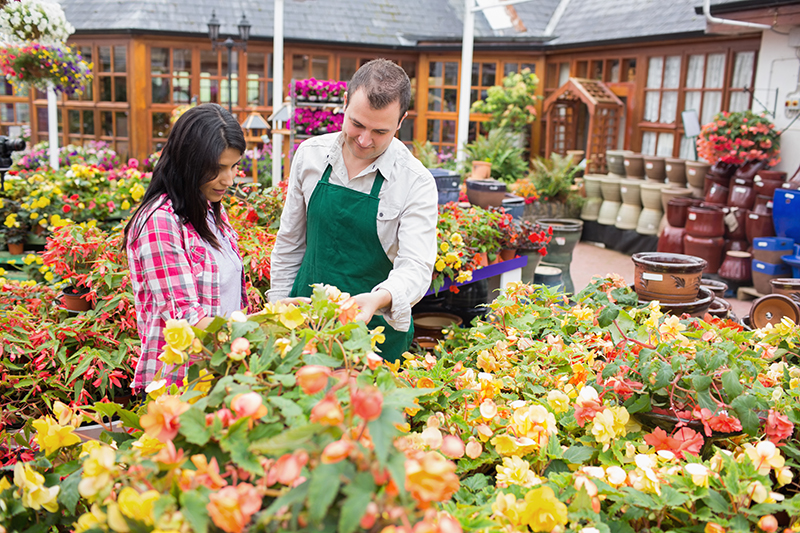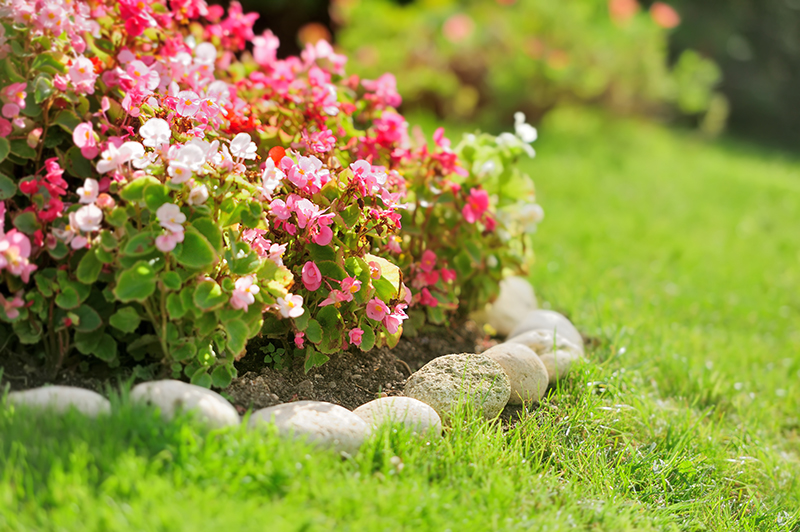When Lance Fort upsized from an apartment to a 2,350-square-foot home in Shoreline, WA, a bedroom community just north of Seattle, he ended up with quite a project on his hands.
The rundown split-level needed significant work, and he spent the first six months hiring contractors to gut and rebuild the interior. By the time Fort finally moved in, he was, as he put it, done.
But as any new homeowner knows, you're never really done - especially if your home has a yard. As a former apartment dweller, Fort hadn't given much thought to the home's one-third-acre backyard until he halfheartedly tried to mow the lawn.
"It was 45 percent moss, 45 percent weeds, and 10 percent grass, with a massive mole problem," laments Fort. The yard was full of rocks, and so unkempt that it was hard to determine where the lawn ended and the overgrown flower beds began.
Having no interest in gardening, and admittedly inexperienced with yard tools, Fort felt overwhelmed before even making a dent. "All I wanted was to get to the point where the backyard didn’t look like a science project."
Fort isn’t alone. New homeowners often focus on interior improvements, like new drapes, a fresh coat of paint, and structural repairs. But those who upsize, like Fort, often forget that yards can take a lot of time, money, and energy - things that are often in short supply at the end of a big move.
Once he realized he was in over his head, Fort enlisted the help of a yard-savvy buddy. The two are tackling the yard slowly but surely on weekends, and Fort hopes to eventually get to the point where his property requires little more than occasional maintenance.
If you, too, are upsizing to a home with a spacious yard, consider the following tips for managing your new outdoor space.
Ask for advice
“Seeking help from a knowledgeable friend or professional is a great first step toward sprucing up a yard,” says Travis Meyer, one of the owners of Outdoors By Design LLC, a Washington-based landscape design and construction company. New homeowners are often new to yard maintenance, and there are plenty of resources available to help you get started.
"Start at a local landscape supply store or a big-box store," suggests Meyer. "They can help you get the right tools to handle the weed situation or level the lawn."

If that feels like too big of a first step, scheduling a consultation with a landscape professional might be the way to go.
"Many people have the capabilities, but they just need some direction," says Meyer. Many landscape companies will spend an hour or two with clients, for a fee, leaving them with a bit of gardening knowledge and a starting point. "Sometimes all you need is a little hand-holding to get the ball rolling."
Dig in
Armed with information and a few gardening tools, you’re almost ready to start getting your hands dirty. Meyer suggests breaking the job down into smaller tasks so it doesn't feel so overwhelming.
Tackle the lawn first. Is it salvageable? If it's unhealthy, uneven, and full of weeds, you might want to remove it and start from scratch. If it's just overgrown, consider mowing, adding soil, and overseeding.
Next, find your borders, and use a string trimmer or edger to clean them up. Adding a fresh layer of bark helps differentiate the yard from the flower beds, Meyer says, and does wonders to improve the appearance of your property.
Now, choose a few colorful plants, a bush or two, or a small tree to add depth and color. "It's these little things that can really change the image of your yard," says Meyer.

Save money where you can
Rent or borrow tools instead of buying them - at least initially. It's hard at first to know what you'll use often and what you might only use once or twice. Check online for a neighborhood tool-sharing site that lends out tools for a small fee, like this Phinney Neighborhood Association in North Seattle.
You can also ask for help. Sometimes friends and family members respond surprisingly well to requests for yard help if there's the promise of pizza and beer at the end of the day.

Browse online for tips on a range of topics, from how to get rid of garden pests and weeds to what types of flowers and plants grow best in your region.
If you need ideas, check out any home and garden shows in your area. The Northwest Flower and Garden Festival, for example, offers seminars that range from basic landscaping tips to incorporating mosaics into your yard or garden.
Hire help
Sometimes all the encouragement in the world won't change the fact that you just don't want to do it yourself. Meyer suggests telling yourself it’s OK - that’s what he and other landscape professionals are here for.
"We have some customers who love to be outside, and some who don’t," says Meyer. "A lot of people just want to go to work and come home to a pristine yard."
For those folks, Meyer suggests getting more than one bid from landscaping companies. Prices vary, and you may find that you connect better with one landscaper's aesthetic than another.
Whatever approach you take, Meyer suggests taking your time with the decisions so you don’t feel overwhelmed. "Pick one thing to do this weekend and another to do next weekend," says Meyer. "Eventually, you've finished your whole project."
Learn more about gardening and lawncare on Zillow Digs.
Related: